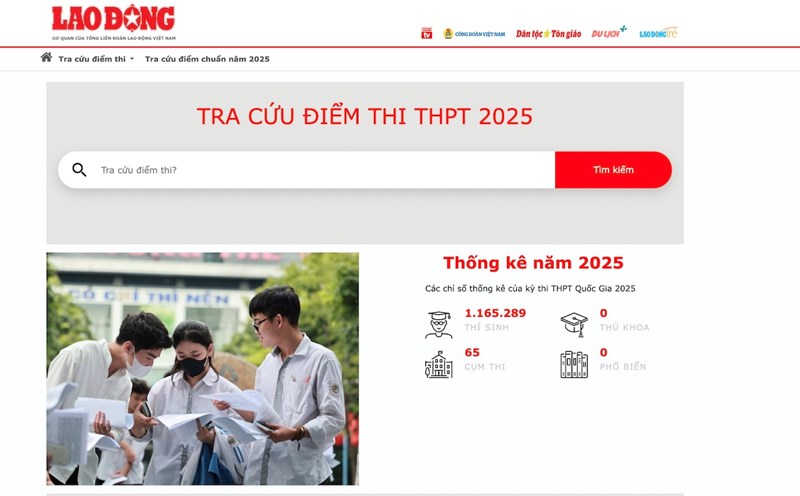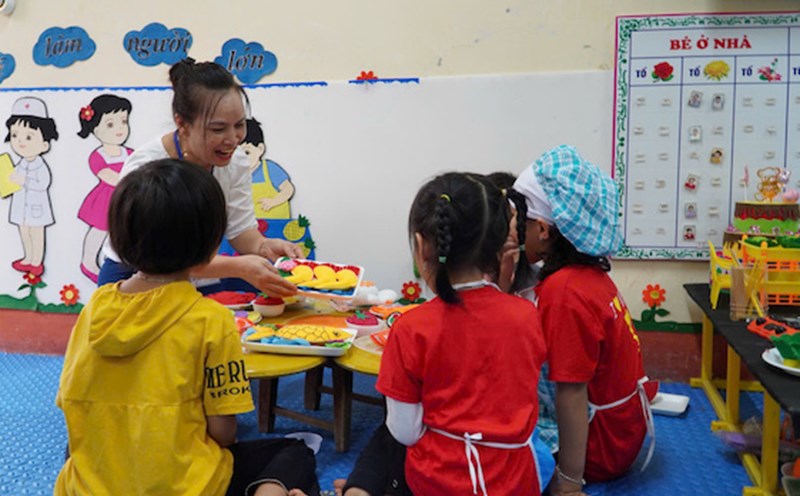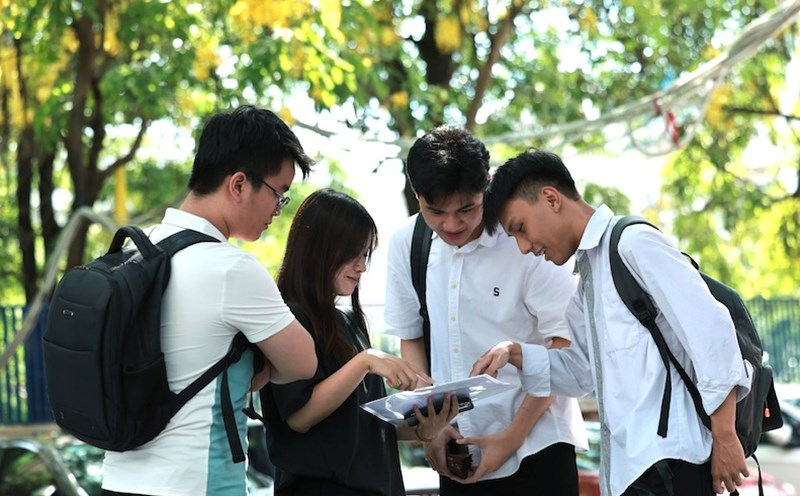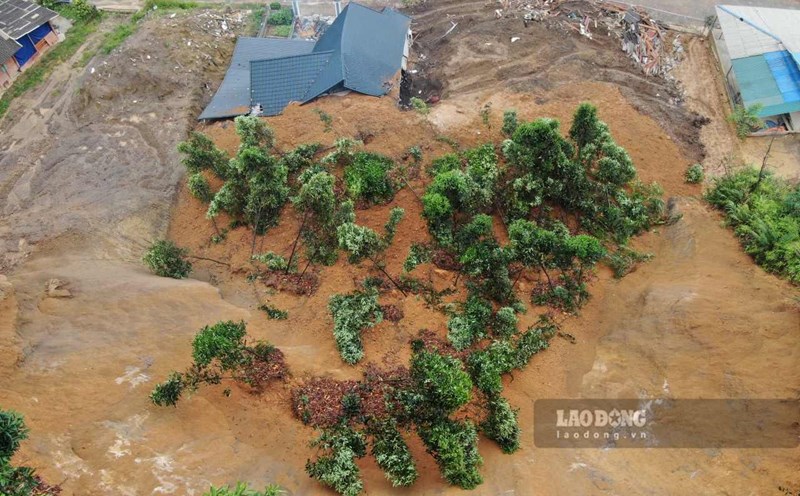Regarding the achievements of the Vietnam team at the 57th International Chemistry Olympiad (ICHO) in 2025.
The International Chemistry Olympiad (ICHO) is the largest and most prestigious competition in the world, held annually for high school students in the field of Chemistry. The 57th ICHO will be held from July 5 to July 14, 2025 in Dubai, United Arab Emirates (UAE) with the participation of delegations from 90 countries and territories, with 354 contestants participating.
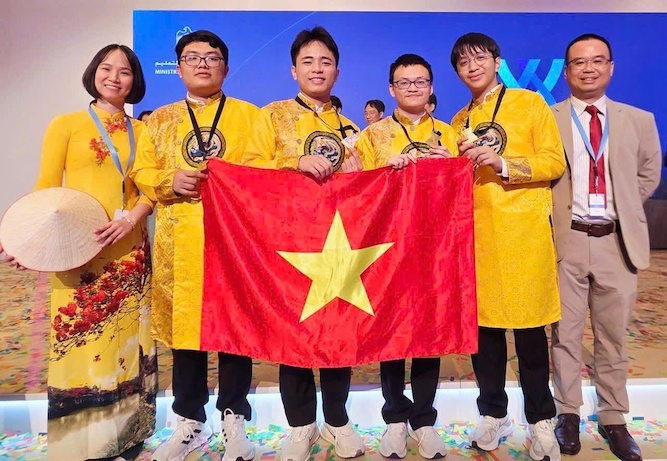
The Vietnamese team has won 4 Gold medals, including 2 Gold medals in the top 10, specifically:
Ngo Quang Minh, a 12th grade student at Bac Ninh High School for the Gifted, Bac Ninh province; ranked 7th.
Nguyen Hoang Khoi, grade 12 student, Su Pham High School for the Gifted, Hanoi National University of Education; ranked 10th.
Giang Duc Dung, a 12th grade student at the High School for the Gifted in Natural Sciences, University of Natural Sciences, Vietnam National University, Hanoi; ranked 14th.
Nguyen Manh Tuan, 11th grade student at Hanoi-Amsterdam High School for the Gifted, Hanoi; ranked 37th.
In the total medal table, the Vietnamese team is tied with the Chinese and US teams in the number of Gold medals.
This is also the first time in history that the Vietnamese team has won 4 Gold medals in an ICHO competition held directly. This year's achievements of the Vietnam national team continue the impressive achievements in ICHO competitions in recent years. With a total of 24 contestants participating in the competition from 2020-2025, the Vietnamese team excellently won 24/24 medals, including 21 Gold medals and 3 Silver medals.
This achievement also continues to affirm the quality of key general education in addition to mass education. At the same time, affirming the right direction in the work of detecting, selecting and training excellent students of the Ministry of Education and Training.
The ICHO exam consists of a theory test and a practical test, each test is taken within 5 hours.
At ICHO 2025, the practical test requires candidates to proficiently practice experimental skills from basic to advanced, such as synthesis and complex analysis, determination of amino acids, recognition of organic compounds using thin-form digital techniques, chuanmeting and measuring the absorption spectrum of UV-Vis. This is a test that requires accuracy, logical thinking and pure laboratory operation.
Meanwhile, the theory exam revolves around environmental issues, technology or the application of chemistry in life such as: marine salinity, solar energy, tennis balls, lanterns ... requiring candidates to apply synthetic knowledge and critical thinking to solve problems. The structure of this year's exam is considered creative, close to practical life but still ensures scientific depth.

